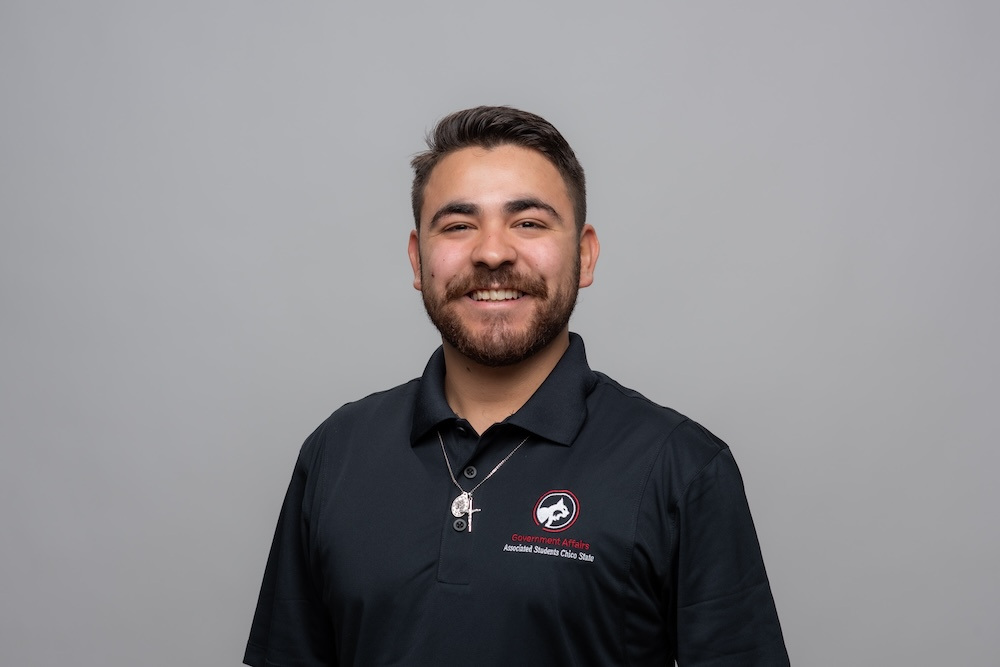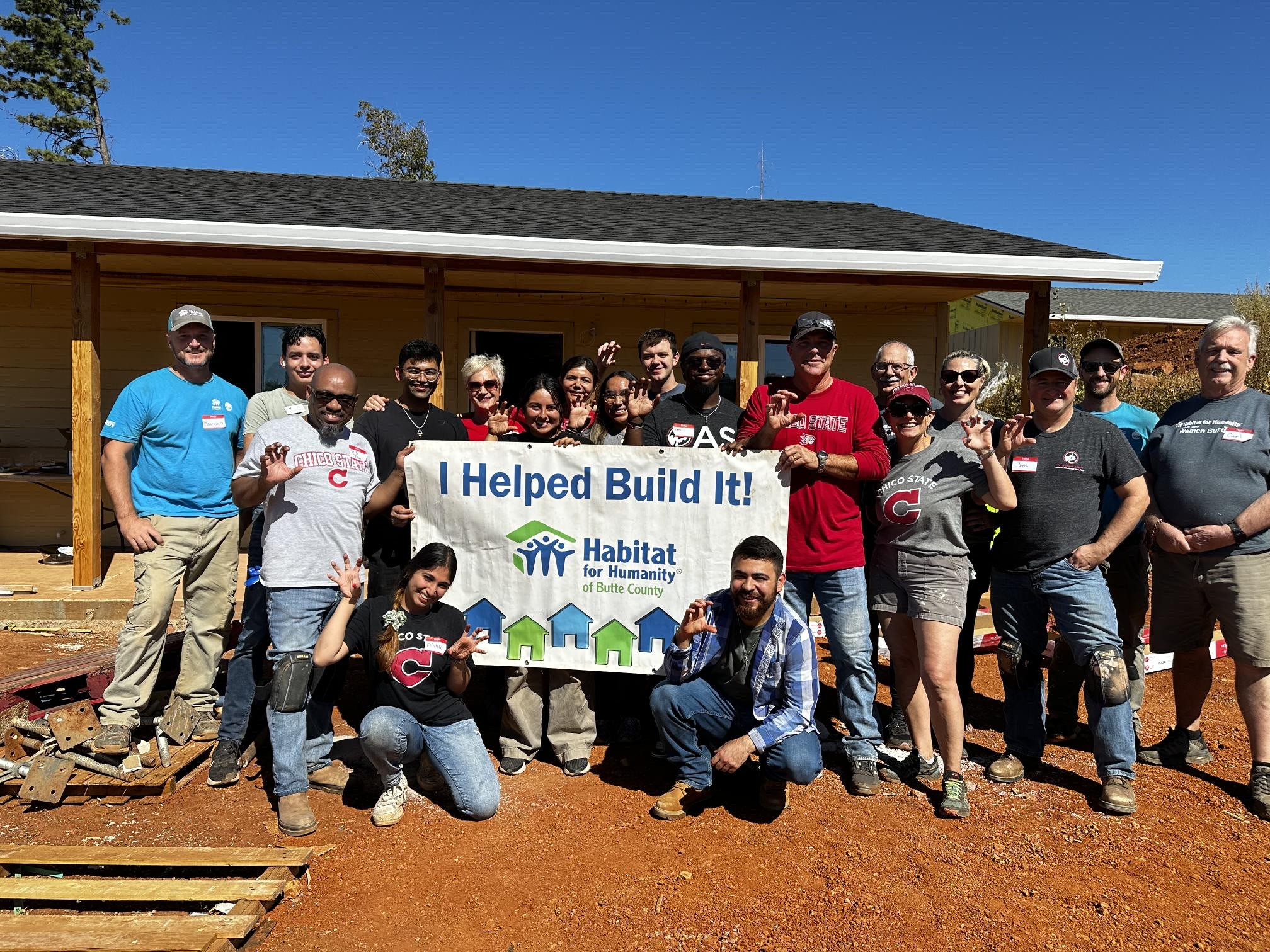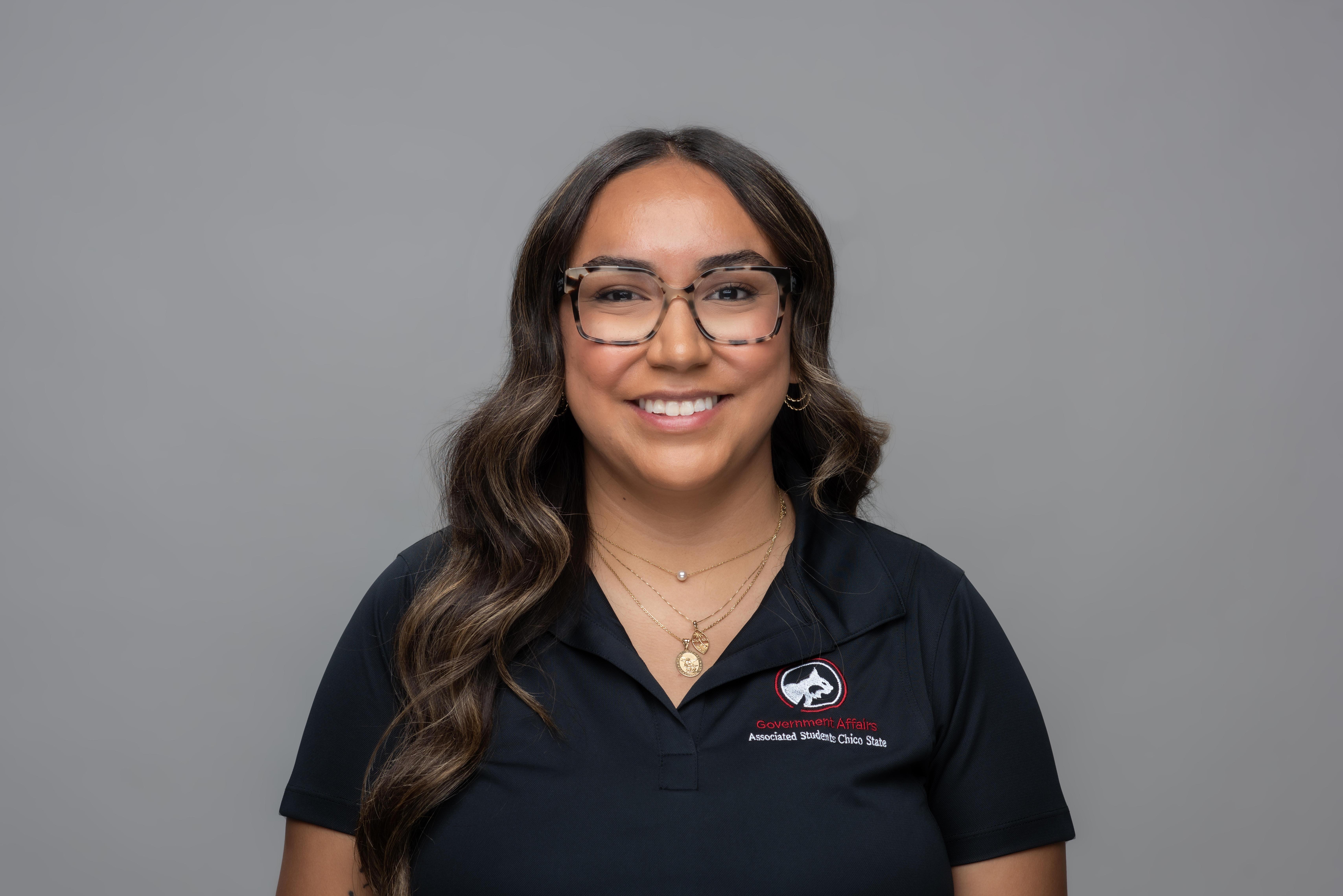
Humberto Partida currently serves as the Commissioner of Student Engagement and Advocacy with Associated Students Government Affairs. Learn more about Partida's position and his experience below.
Can you describe your main responsibilities in this role?
As a commissioner, my role comes with three main responsibilities:
• Government Affairs Committee (GAC) Member – I serve as a voting member, helping make decisions impacting students.
• Chair of the Campus Engagement Council (CEC) – And no, not a literal chair (lol). I lead meetings that focus on strengthening student involvement and representation.
• Associated Students Government Affairs Representative – This is the heart of what I do: advocating for students and making sure their voices are heard.
A typical week includes attending GAC and CEC meetings, engaging with students to understand their needs, and working on projects like improving mental health access, Cats Connect, and the Chico State App. Most of the time, you can find me during my office hours (Mondays 12:05 p.m. - 3:20 p.m. & Tuesdays 2:00 p.m. - 3:45 p.m.) in BMU 221— also known as the Fishbowl—so stop by if you ever have questions about the Associated Students (AS)! At the end of the day, my goal is simple: to be a friendly face, an approachable resource, and an advocate for a more inclusive, student-centered campus.

What was something you didn’t know coming into this role that you think others should be aware of?
I had a general idea of what AS did before stepping into this role, but there was a lot I didn’t expect—especially regarding the office culture. While AS does incredible work, I quickly noticed it wasn’t as culturally diverse as I had hoped. It took time to adjust and understand how things function within the Bell Memorial Union (BMU) and AS, a central hub for student life.
When I first started, I was quiet. I often second-guessed myself, worried about taking up too much space. But little by little, I grew into the role—one that had been vacant for quite some time. It wasn’t always easy. I faced hurdles, miscommunication, and even moments of doubt. Yet, through it all, I learned to navigate these challenges and push forward.
But this is not me discouraging anyone from running—if anything, it’s the opposite. We need more representation. The best way to change things is to be present, take up space, and make your voice heard. Bureaucracy can be slow, and getting things done requires persistence, negotiation, and compromise.
What surprised me the most? Relationship-building is essential—with fellow representatives, full-time staff, and administrators. And I have to say, I’m beyond grateful for the career staff in AS. They welcomed me with open arms, helped me learn the ropes, and made me feel at home. Without them, this transition would have been a lot harder.
I sometimes felt out of place, but if you’re elected—whether by a huge margin or running unopposed as I did—you belong here.
What have you gained from this role that you’ll carry with you into your future career?
This role, surprisingly, has helped me grow in my faith. I've sharpened my leadership, public speaking, and negotiation skills—and also my ability to compromise (like when I had to let go of my dream of building a bowling alley or installing bidets in campus restrooms, but hey, we all have to pick our battles).
One thing that caught me off guard? The number of bylaws. I had no idea how much legal jargon and policy went into running a student government. That’s why I became an expert in asking poignant questions.
But honestly, this role has taught me how to communicate effectively, navigate complex decision-making processes, and advocate for others and myself. Most importantly, I’ve developed a deeper understanding of how institutions—like AS, which operates as a corporation—function as an auxiliary arm of a CSU.
Also, in a totally unexpected twist, I fell in love with budgets. Yes, you read that right. After sitting through a few GAC meetings, I became fascinated with budgeting—so much so that I enrolled in a Public Budgeting and Finance class.
All of this is to say that at the seminary and in my future career (for those who know what I’m up to—wink), I’ll take these skills with me: patience, humility, prudence, and most importantly, courage.

What tips would you give to someone who’s thinking about running for office?
Please treat this position as a job that others trust you to hold. You could have the best résumé in the world, but it won’t mean much if people don’t believe in you.
Some things to keep in mind:
• Talk to students. It’s not enough to have ideas—you must know what students need.
• Be patient. Change doesn’t happen overnight. Some projects take months (or years) to complete.
• Don’t be afraid to take up space. You might feel like you don’t belong at the table. But trust me—you do.
Understand that bureaucracy is real. Things move slowly, and that can be frustrating. But persistence pays off.
If you’re even considering running, do it. We need more voices, perspectives, and people willing to advocate for their peers. You never know the impact you can have until you try.
How would you sum up your overall experience in this position? Would you recommend running for office to others?
Absolutely. This role has been one of the most rewarding experiences of my college career. It’s challenging, frustrating at times, and requires a lot of patience—but it’s also deeply fulfilling.
I’ve had the opportunity to connect with students, work on meaningful projects, and develop skills that will stay with me for life. I’ve learned what it takes to navigate institutional systems, advocate for change, and build coalitions. Most importantly, I’ve seen firsthand how much of a difference student voices can make. So, go for it and have courage if you’re on the fence about running. You won’t regret it.

Is there anything else about your role that you think students should know—something that isn’t commonly understood or might be overlooked?
One thing I wish more students knew? AS isn’t just for “student government people.” You don’t need to be a political science major or have experience in leadership to get involved. At its core, AS exists to serve students. Whether it’s through funding, improving mental health resources, or advocating for policy changes, our work directly impacts student life. And the best part? Anyone can be a part of it.
Also, don’t be afraid to start small. If running for office feels intimidating, get involved in a committee, attend a meeting, or reach out and ask questions. You’d be surprised how many opportunities are out there. AS is what we make it. And the more diverse voices we have in the room, the stronger our student government will be.
At Chico State, student representatives are elected each academic year to serve and advocate on behalf of the student body with AS Government Affairs. This election is held annually during the spring semester. All elected representatives serve a one-year term and contribute to Associated Students and University councils and committees, serve as representatives of the Colleges, and advocate on behalf of the students of Chico State.
Students interested in running for office are required to apply and declare their candidacy. 2025 applications for Associated Students Election Eligibility open on Monday, February 10th, and are due on Wednesday, February 26th by 12 p.m. Once confirmed eligible to run, the Election Supervisor will invite you to formally declare a position in which you wish to run. For information regarding the election process, please visit as.csuchico.edu/election.




